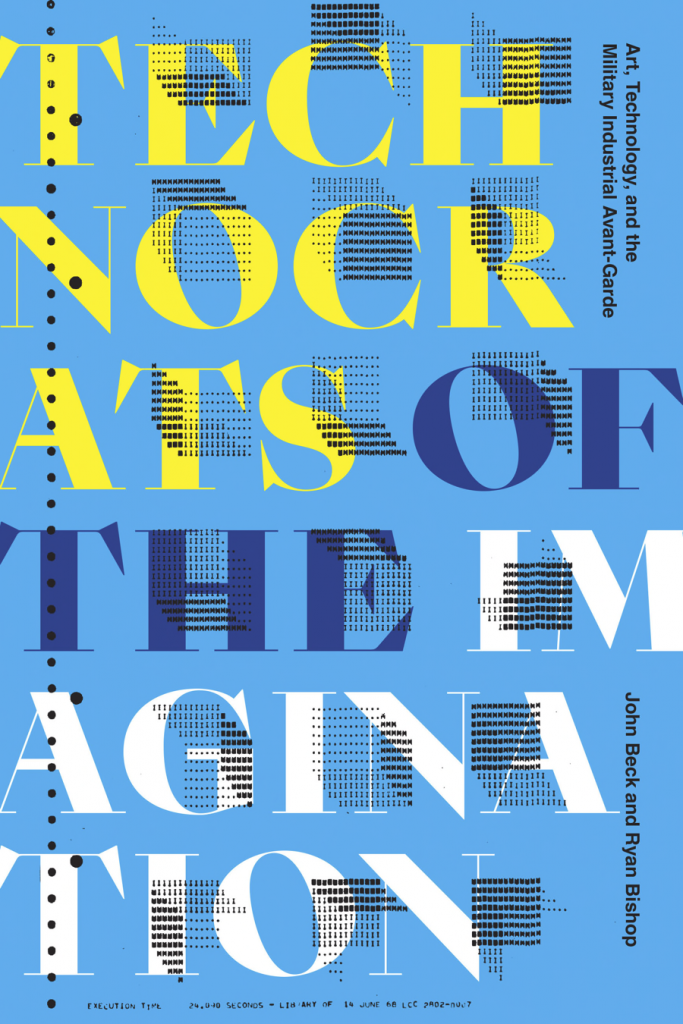John Beck & Ryan Bishop Technocrats of the Imagination, recently published by Duke University Press, is about a particularly striking form of interdisciplinarity: the Cold War cooperation between the military-industrial complex and avant-garde art. Below, Ryan shares some of the background related to how he came to co-author the book, the experience of writing the book and the continued necessity of understanding the Cold War.
The book grew out of an earlier edited collection John Beck and I did in 2018 called Cold War Legacies: Systems Theory Aesthetics (Edinburgh UP), which in turn grew out of a workshop we ran at the University of Westminster in 2016, at which the contributors to the edited volume (including Jussi Parikka) presented working versions of their individual contributions. When John and I were writing the introduction to the edited volume, we would often meet or talk by phone about what to include or exclude from the introduction, and we concluded that the introduction could just go on endlessly due to the complexity of the subject matter and main thesis (which is the Cold War continues to constitute almost all elements of our collective contemporary moment in material and immaterial ways).
One possible continuation of that introduction is this new co-authored book. We discussed over several months an outline and proposal for the book, and wrote an article outlining some of the main concerns to be addressed in the book: an abbreviated take of some of the argument. Once we had the book contract, we divided up chapters for initial drafts and got to work. After a chapter draft was completed by one of us, we sent it to the other, who responded and wrote through it. When this came back, we spoke on the phone about possible directions. All parts of the book were fully co-authored. I have known John Beck for over 15 years and worked with him on many projects, with both of us writing individually on the Cold War in different articles, book chapter and books. I have commissioned pieces from him for different projects and long admired his intelligence, wit and writing, so it was a real pleasure to collaborate on these projects and more might be coming.
An electronic version of the book is available via the Open Research Library
